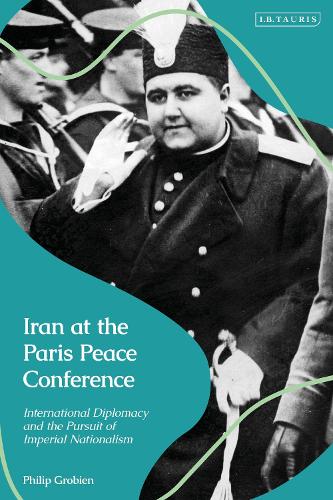
Iran at the Paris Peace Conference: International Diplomacy and the Pursuit of Imperial Nationalism
(Paperback)
Available Formats
Publishing Details
Iran at the Paris Peace Conference: International Diplomacy and the Pursuit of Imperial Nationalism
By (Author) Philip Grobien
Bloomsbury Publishing PLC
I.B. Tauris
22nd January 2026
United Kingdom
Classifications
Professional and Scholarly
Non Fiction
Middle Eastern history
Colonialism and imperialism
940.3141095505
Physical Properties
Paperback
240
Width 156mm, Height 234mm
Description
The end of the Qajar era in Iran, despite the accepted narrative of decline, was in fact an occasion of modern and forward-thinking nationalism. Iran developed an imperial nationalism, which was informed by its experiences under British and Russian hegemony and the absorption of Western modern ideas and practices, and which now looked towards a future as a sovereign and independent state within the foundational framework of its previous Empire. Emboldened by post-WWI notions of self-determination and the development of international institutions devoted to peace, Iran spearheaded its new-found diplomacy by sending a delegation to the peace talks in Paris in 1919.
This book shows how Irans immediate post-war diplomacy came about, the conduct of Irans delegation to Paris, frustrations with the Anglo-Persian Agreement, and ultimately how Irans progress became the victim of British imperialism. Throwing a spotlight on an under-researched period of Iranian history, it will be of interest to readers of Iranian history, and those interested in the Paris Peace Conference of 1919.
Reviews
The outcomes of the Iranian delegations participation at the 1919 Paris Peace Conference, albeit not meeting initial expectations, signifies a distinguished chapter in Irans diplomatic history. Their contributions illuminated both the wartime tribulations and their aspirations for Irans sovereign future. Philip Grobien's comprehensive study, while adeptly delineating the Iranian envoys pursuits, captures the post-war vibrant international zeitgeist. * Touraj Atabaki, Professor, International Institute of Social History, Netherlands *
Author Bio
Philip Grobien holds a PhD from the University of St Andrews. His published work to date reflects his interest in the development of Irans territorial nationalism during the Qajar dynasty.
